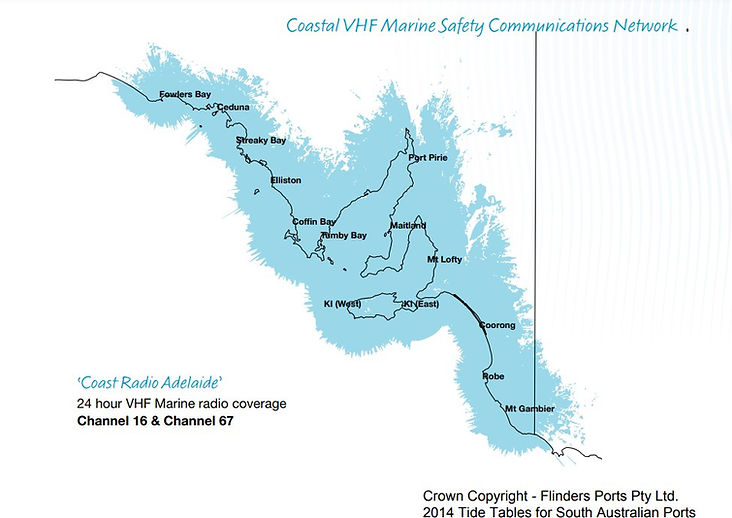



VHF Marine Radio

VHF Marine Radio In Our Yorketown Radio Base
The need for a VHF Marine Radio on your vessel.
It is our opinion that a VHF marine radio is an essential item of safety equipment on all boats. A radio on board enables fast direct contact with marine rescue agencies and/or with other boats in your vicinity should assistance be required in the event of an accident or breakdown.
Marine radio provides three avenues of assistance – Weather and Hazard alerts, local safety Log-On and Log-Off, and radio checks.
Many Volunteer Marine Rescue groups around South Australia monitor VHF marine channel 16, This volunteer network is manned by trained volunteers at licenced limited coast marine rescue radio bases.
Such as our Coastal Patrol Radio Bases at Yorketown & Port Victoria both monitor VHF Marine Channel 16.
Log On whenever you’re heading out on the water and Log Off when you return. We’ll stand watch. If you don’t Log Off as planned, our volunteers will start searching for you.
You can always Log On, whether you’re out for a morning’s fishing, a day trip around your local area or cruising along the coastline. And it doesn’t matter if you’re on a tinnie, a cruiser, a yacht, a kayak, a canoe or a jet ski.
When you Log On, our radio operator will ask you for some basic information about your vessel, your destination and contacts.
Tell us:
-
Your boat registration number
-
Where you’re leaving from
-
Where you’re heading
-
What time you plan to return
-
The number of people on board
-
Your mobile phone number
If the fish are biting and you decide to stay out longer, simply call the base on VHF Ch 16 to update your arrival time.
Remember to Log Off when you’re back on shore. If you haven’t let us know you’re back safely, we’ll start to look for you. We’ll try calling you first up, just in case you’ve forgotten to Log Off and headed home with your catch. That’s the best outcome. If we get no answer, we’ll step up the response.
Coast Radio Adelaide & VHF Marine Repeaters.
VHF marine channels 16 & 67 are also monitored 24/7 by Coast Radio Adelaide with a network covering the States Coast from South of Mount Gambier to West of Fowlers Bay. (See pic below for Coast Radio Adelaide coverage)
There is also a Repeater network right around the Coast of SA that greatly extends your range. (See pic below for details of repeaters in your area)
What about Mobile Phones?
Don’t bet your life or the safety of your boat and crew on a mobile phone as your first or only means of contact in an emergency. When you are at sea you cannot depend on mobile phone coverage. Remember, when you make a phone call you are talking to just one person. How often do mobile phone calls drop-out in the middle of a call. Most mobiles don’t work well when wet or damp. There are no mobile phone towers at sea.
When you call for help on your marine radio other marine radios will hear your call and there may be another vessel nearby that can help much faster. Do take your mobile with you, but use it as an extra method of communication, not the only method of communication.
Please note legally you Do Need to be qualified to use a VHF Marine Radio.
Further info can be found here: https://www.amc.edu.au/industry/omc
Some Volunteer Marine Rescue groups conduct courses that the General Public can attend to obtain your Short Range Operator Certificate of Proficiency or SROCP (VHF Radio Qualification).
You can find your nearest Invigilator From the list on the Australian Maritime College website here: https://www.amc.edu.au/industry/omc/invigilator-search/south-australia
You can also do the exam online through websites such as:
(We are not affiliated with this company) https://marineradiolicence.com.au/marine-radio-licence
The Minimum Qualification for VHF Marine is the Australian Waters Qualification (AWQ) – the AWQ is ideal for casual boaters who only need to operate a marine radio in Australian waters (within 12 nautical miles of the coast, But if you are going past 12 nm you will need the SROCP or higher qualification).
Safe Boating Everyone.

